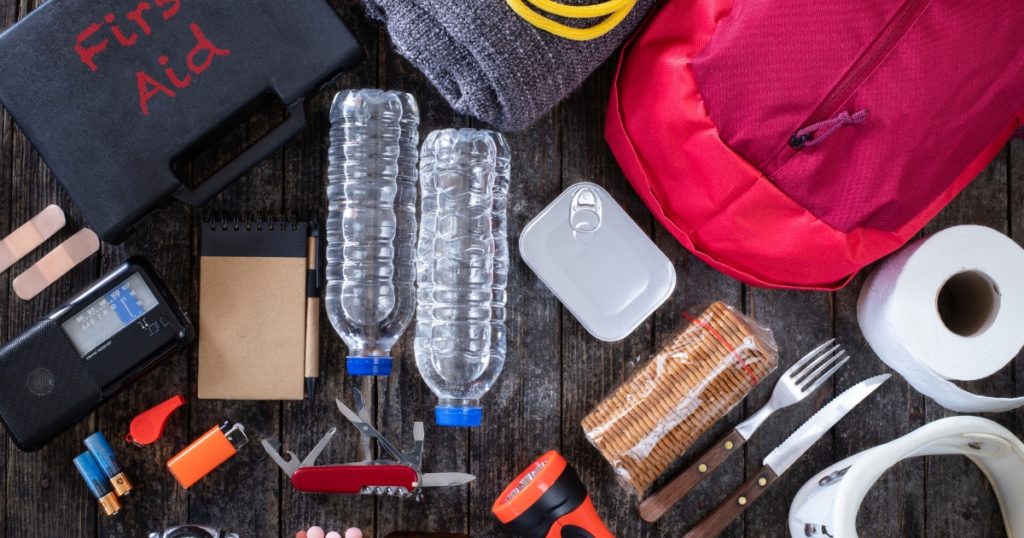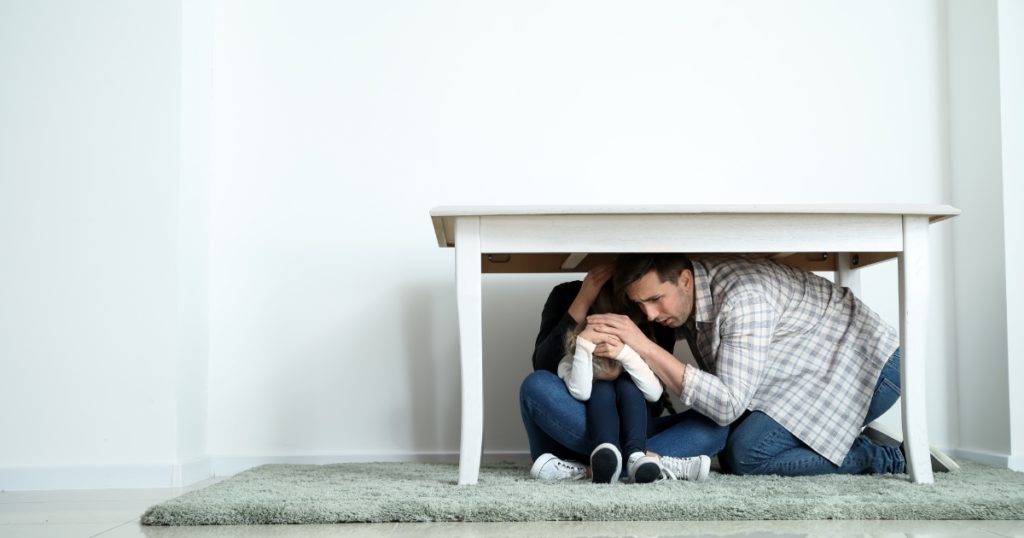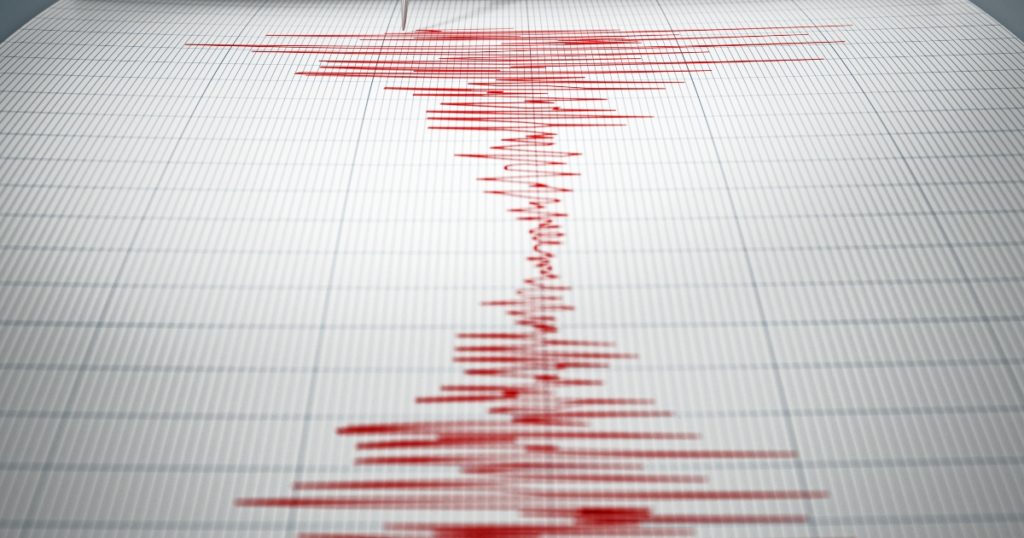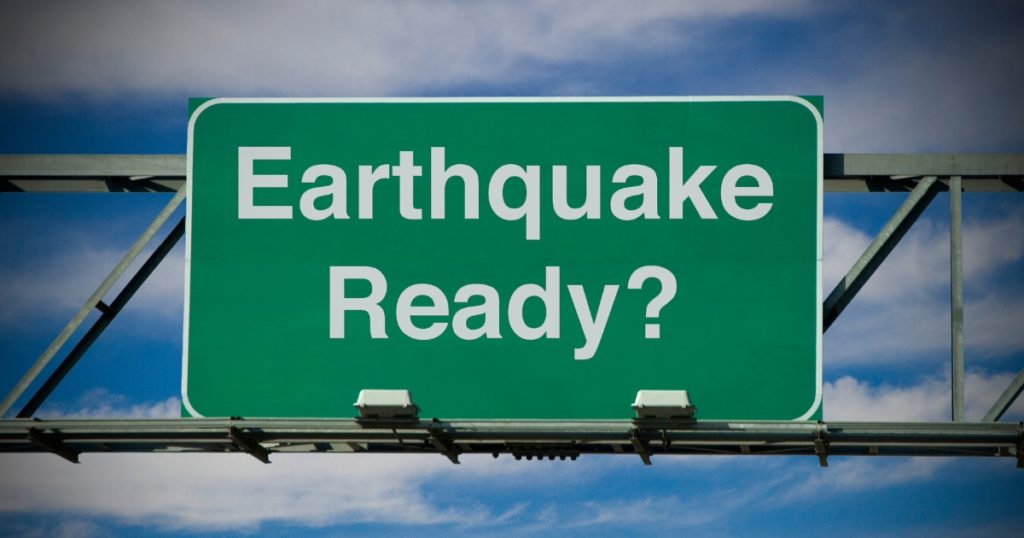Earthquakes are a common occurrence in many parts of the world and can cause considerable destruction and loss of life. Unfortunately, we can’t predict when an earthquake will strike, so it’s important to be prepared. This article will explain what to expect in an earthquake, how to prepare before, during, and after an earthquake, and provide some useful resources to keep you and your loved ones safe.
What to Expect in an Earthquake
An earthquake is an intense shaking of the ground caused by a sudden release of energy in the Earth’s crust. This energy can cause the ground to shake, ripple, and even crack. Earthquakes can range from very mild to extremely severe and can last for seconds or minutes. Depending on the magnitude of the quake, the destruction can vary greatly. Smaller quakes may only cause minor damage, while larger quakes can cause major destruction. The effects of an earthquake can also be felt beyond the epicenter. Earthquakes can trigger landslides, tsunamis, and fires. Earthquakes can also cause damage to buildings, roads, bridges, and other infrastructure. In some cases, the shaking can be strong enough to cause structural damage to homes and other buildings.

How to Prepare Before an Earthquake
The best way to prepare for an earthquake is to take steps to make sure your home and property are prepared. Here are some steps you can take:
- Secure Your Home
The first step in securing your home is to make sure it is structurally sound. Check for any signs of damage such as cracks in walls and ceilings, loose bricks or mortar, and loose pipes. If you find any signs of damage, contact a qualified contractor to repair them. You should also check for any loose items that could become projectiles in an earthquake. Secure any furniture, appliances, and other items to the walls or floors to prevent them from becoming airborne.
- Stock Up on Supplies
In the event of an earthquake, it’s important to have a supply of food, water, and other essential items. Stock up on non-perishable food items, such as canned goods and dried foods, as well as a supply of bottled water. You should also have a first-aid kit and other essential items, including flashlights, batteries, and a radio.
- Develop an Emergency Communication Plan
It’s important to have an emergency communication plan in place in the event of an earthquake. Make sure everyone in your family knows your plan and how to contact each other in the event of an emergency. Also, make sure to have a list of emergency contacts, such as family, friends, and local authorities.

What to Do During an Earthquake
During an earthquake, it’s important to stay calm and follow the appropriate safety measures. Here are some steps you can take:
- Drop, Cover, and Hold On
The most important thing to remember during an earthquake is to drop, cover, and hold on. Drop to the ground and take cover under a sturdy piece of furniture or against an interior wall. Hold on and stay in place until the shaking stops.
- Evacuate If Necessary
If the shaking is severe and you’re in a building, evacuate as quickly and safely as possible. Avoid elevators and stairwells and use the stairs instead. If you’re in a vehicle, pull over to the side of the road and stay there until the shaking stops.
What to Do After an Earthquake
Once the shaking has stopped, you can assess the situation and take appropriate action. Here are some steps you can take:
- Check for Injuries
Check yourself and others for injuries. If you or someone else is injured, seek medical help immediately.
- Check for Damage
Check your home and property for damage. If there is any damage, contact your insurance company as soon as possible.
- Listen for Emergency Updates
Listen for emergency updates on the radio or television. Follow any instructions from local authorities.

Earthquake Preparedness Kits
An earthquake preparedness kit is an essential part of any earthquake preparedness plan. These kits typically include items such as food, water, flashlights, batteries, a first-aid kit, and other essential supplies. You can purchase ready-made kits or assemble your own.
Earthquake Insurance
Earthquake insurance can help protect your home and property from earthquake damage. Earthquake insurance is typically not included in a standard home insurance policy, so you’ll need to purchase a separate policy. Make sure to read the policy carefully to understand what is and is not covered.
Earthquake-Proofing Your Home
There are steps you can take to make your home more earthquake-resistant. Some of these steps include retrofitting your home with earthquake-resistant materials, anchoring bookcases and heavy furniture to the walls, and installing seismic shutoff valves.
Earthquake Preparedness Resources
There are many resources available to help you prepare for an earthquake. The Federal Emergency Management Agency (FEMA) provides information on earthquake preparedness, including how to create an emergency plan and how to build an earthquake preparedness kit. Your local Red Cross chapter or emergency management office may also have additional information.

Conclusion
Earthquakes can cause significant destruction and loss of life, so it’s important to be prepared. Taking the time to prepare before an earthquake can help minimize the damage and make sure you and your family are safe. Make sure to secure your home, stock up on supplies, develop an emergency communication plan, and earthquake-proof your home. Finally, make sure to familiarize yourself with earthquake preparedness resources in your area. Don’t wait until the earth shakes… prepare now.

